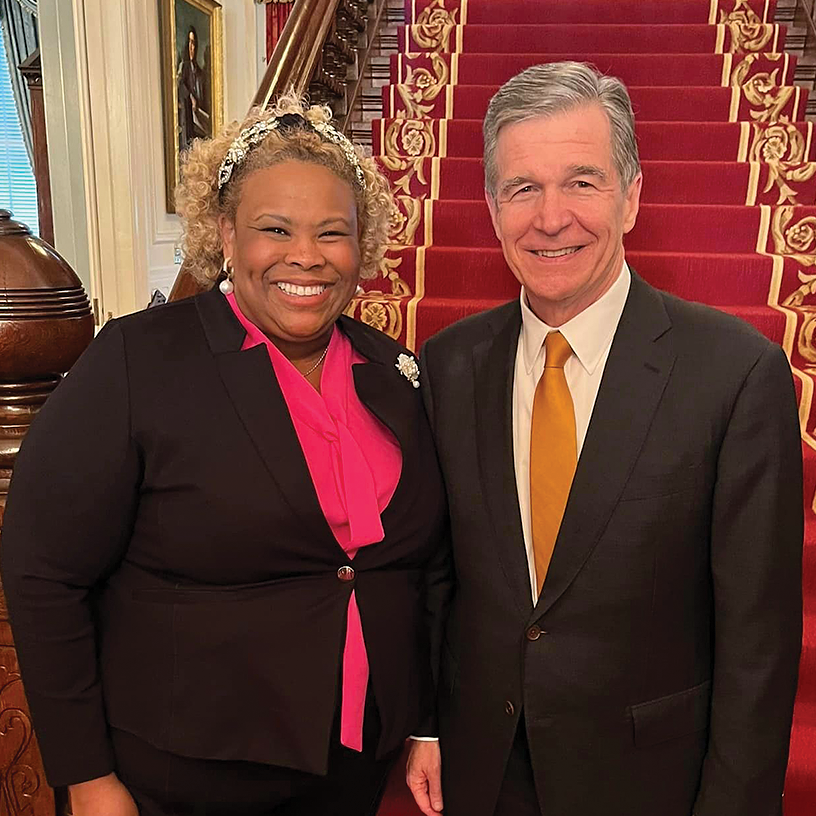I wrote this essay before the May 27 death of Dr. Joseph Milner (P ’90, ’93, ’95) and join in mourning his passing. The sentiments expressed in this piece have only become truer and more valued as we live in the legacy of his exceptional life and contributions.
From incredible faculty members to foundational learning experiences, Wake Forest with its guiding principle of Pro Humanitate has been a huge motivator and inspiration in my life and career.
I first met Joseph Milner, then-chair and professor of English, in the summer of 2000. I was 17 years old, attending the North Carolina Governor’s School East program on the campus of Meredith College. From my earliest encounters with him, as a visitor in my English classes, I knew he was a man of great intellect, but even greater insight and kindness. Dr. Milner was the first person to encourage me to apply to Wake Forest. At that time my heart was set on Duke, and I wasn’t entertaining any other options. Dr. Milner in his typical manner was supportive and encouraging of my “dream school” pursuits. However, in a conversation I’ll never forget, he told me: “Kim, Duke is a fine school, and you’ll certainly do well there, but Wake Forest could benefit from a great mind like yours. … I hope you’ll consider us.”
Without knowing it at the time, Dr. Milner had unlocked a new sense of self for me. He made me see myself not only as a student with a strong transcript and good test scores but as a “great mind” with a unique perspective and insights that could benefit and influence the “thought life” of an academic community.
Thankfully, his influence did not end with my admission to Wake. He went on to be my graduate program director and English adviser in the Master Teacher Fellows program and in doing so influenced my life for decades to come.

Jones with North Carolina Gov. Roy Cooper
When I was named the 2023 Burroughs Wellcome Fund North Carolina Teacher of the Year in April, I called Dr. Milner’s wife, Lucy (MAEd ’86, P ’90, ’93, ’95), an incredible educator in her own right, to let her know how vital they were to my success and to express my profound love and respect for them as exceptional teachers and people. Dr. Milner will forever hold a special place in my heart. He has a profound ability to make people see and believe in their greatest potential and foster the very best of their talents. While he is no longer teaching courses, he has built a legacy of hundreds of educators like me. I am the teacher and person I am today because of his investment and support. His educational legacy is the epitome of Pro Humanitate, and I can only pray and endeavor to be a Joe Milner in the lives of my students.
My undergraduate student experience has also had a tremendous impact on how and where I’ve chosen to build my career. As an undergrad, I remember discussing educational backgrounds with many of my friends. One of the most impactful facts these conversations revealed was that most of my white peers had had few, if any, Black educators in their entire academic experience. I firmly believe “who you learn from” directly influences “who you believe you can learn from.” When students, even the brightest of the bright like those who attend Wake, only have teachers of a singular background, it deprives them of the critical and beneficial experiences that come with learning from diverse instructors.
Patterns create norms, and experiencing and appreciating the pedagogy, perspectives and insights of diverse teachers are critical for all students who want to succeed in an ever-diversifying world. With these experiences in mind, I chose to work in a college town with a legacy of investment in its public schools and academic achievement, but also one in need of greater diversity in its teaching population.
For 17 years, I’ve sought to unlock, enrich and employ my skills as the “thought leader” Dr. Milner believed I could be. I’ve had the great fortune to teach and invest in the lives of countless, incredible students and in doing so enhance their vision of what an education and an educator can look like.
Kimberly Jones (’05, MAEd ’06), who was a Joseph G. Gordon Scholar at Wake Forest, has taught English with a focus on world literature at Chapel Hill High School in North Carolina for 17 years. She lives in Danville, Virginia, with her husband, Joshua Norris, a political consultant who owns the Organize Virginia firm, and her two stepsons, Trent, 18, and Cameron, 14.


